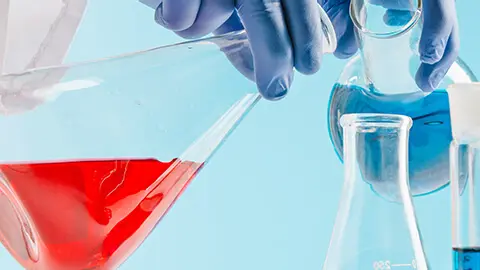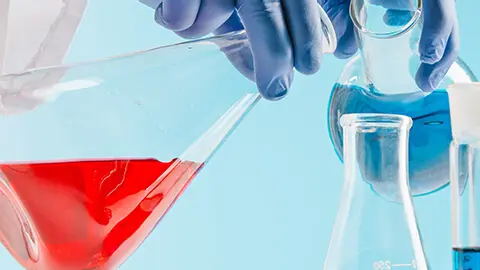Exploring Popular API Types: A Comprehensive Overview

Active Pharmaceutical Ingredients (APIs) form the foundation of modern pharmaceuticals, serving as the biologically active components responsible for the therapeutic effects of medications. These crucial compounds undergo rigorous research, development, and manufacturing processes before being integrated into final pharmaceutical formulations. The pharmaceutical landscape encompasses a diverse range of API types, each targeting specific health conditions and physiological systems. Understanding these various categories provides valuable insights into the complexity and sophistication of contemporary medicine and highlights the continuous innovations driving healthcare advancement.
Antibiotics and antimicrobials represent one of the most transformative API categories in medical history. These compounds target pathogenic microorganisms by disrupting essential cellular processes, effectively eliminating infections that once proved fatal. From beta-lactams like penicillin to advanced macrolides and fluoroquinolones, this category encompasses a vast array of molecular structures designed to combat bacterial, fungal, and parasitic threats. However, the rising challenge of antimicrobial resistance necessitates continuous innovation in this field. Modern research focuses on developing novel mechanisms of action, combination therapies, and antimicrobial stewardship programs to preserve the efficacy of these vital medicines.
Oncology and High-Potency APIs (HPAPIs) represent cutting-edge pharmaceutical development, characterized by extreme potency at minute concentrations. These specialized compounds often target cancer by interfering with cell division, signal transduction, or angiogenesis processes. Modern oncology APIs include targeted therapies like kinase inhibitors and monoclonal antibodies that precisely attack cancer cells while minimizing damage to healthy tissues. The manufacturing of HPAPIs requires specialized containment facilities, sophisticated handling protocols, and advanced analytical techniques due to their high pharmacological activity at nanogram levels. Despite these challenges, this field continues to expand, offering increasingly personalized and effective treatments for various malignancies.
Cardiovascular and metabolic APIs address some of the most prevalent health challenges globally. This diverse category includes statins for cholesterol management, antihypertensives like ACE inhibitors and beta-blockers, anticoagulants, and antidiabetic agents. These compounds operate through various mechanisms, from enzyme inhibition to receptor modulation, targeting the complex systems that regulate heart function, blood pressure, glucose metabolism, and lipid processing. Recent innovations focus on dual-action compounds that simultaneously address multiple risk factors, improving patient compliance and treatment outcomes. The development of these APIs requires deep understanding of intricate metabolic pathways and cardiovascular physiology, making them among the most extensively studied pharmaceutical compounds.
Biologics and peptides represent a paradigm shift from traditional small-molecule APIs toward complex, protein-based therapeutics. These large-molecule compounds, often produced through recombinant DNA technology or advanced peptide synthesis, include monoclonal antibodies, therapeutic proteins, vaccines, and engineered peptides. Their highly specific interactions with biological targets offer unprecedented precision in treating autoimmune disorders, cancers, and genetic conditions. However, their structural complexity presents unique manufacturing challenges, requiring specialized bioprocessing techniques, cold chain management, and sophisticated analytical methods. Despite these hurdles, biologics continue their rapid growth, with innovations like antibody-drug conjugates and bispecific antibodies expanding treatment possibilities for previously untreatable conditions.
Central Nervous System APIs address neurological and psychiatric conditions by modulating neurotransmission, receptor function, and neural signaling pathways. This category encompasses antidepressants, antipsychotics, anxiolytics, anticonvulsants, and cognitive enhancers, each designed to cross the blood-brain barrier and interact with specific neural targets. The development of CNS APIs presents unique challenges due to the complexity of the brain, limited understanding of many neurological disorders, and difficulties in measuring therapeutic outcomes objectively. Modern research focuses on novel mechanisms targeting glutamate, GABA, and neuropeptide systems, along with improved delivery methods to enhance brain penetration while minimizing peripheral side effects.
Vitamins and nutraceuticals occupy a distinctive position in the API landscape, bridging pharmaceutical and nutritional applications. These compounds, which include essential vitamins, minerals, amino acids, and bioactive plant compounds, support fundamental physiological functions and help prevent deficiency-related conditions. Unlike conventional pharmaceuticals, many nutraceuticals focus on maintaining optimal health rather than treating specific diseases. Modern research increasingly validates the role of these compounds in supporting immune function, cognitive health, and metabolic processes. The pharmaceutical industry continues to develop advanced formulations that enhance bioavailability, stability, and targeted delivery of these essential nutrients, expanding their therapeutic potential beyond traditional nutritional supplementation.
The diverse landscape of API types demonstrates the remarkable specialization and sophistication of modern pharmaceutical science. From life-saving antibiotics to revolutionary biologics and essential nutraceuticals, these compounds form the backbone of healthcare interventions across the spectrum of human disease. As scientific understanding deepens and technological capabilities advance, we can anticipate continued innovation in API development, with increasing focus on personalized medicine, enhanced efficacy, and improved safety profiles. The future of pharmaceutical science lies in further refinement of existing API categories and the exploration of novel therapeutic approaches, ultimately expanding our ability to address unmet medical needs and improve global health outcomes.
Note: IndiBlogHub features both user-submitted and editorial content. We do not verify third-party contributions. Read our Disclaimer and Privacy Policyfor details.







